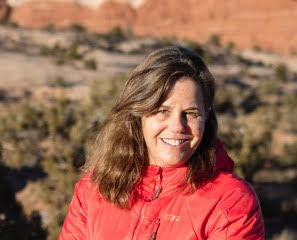When we develop natural resources on our public lands, our county receives important royalties. Mineral lease money from oil and natural gas has paid for many improvements to Grand County infrastructure and services and brought needed revenues to our county budget.
However, existing BLM regulations allow significant natural gas – or methane – to escape into the atmosphere when a new well is drilled. Other emissions come from existing well pads; valves are not tight; seals get old; and gas escapes.
Annual methane emissions on all federal lands in 2012 equaled the annual emissions from 42 million cars. Methane depletes ozone 20 times faster than carbon dioxide, making it a major contributor to climate change.
The good news is that new and existing technologies in oil and gas production are poised to collect more of the escaping methane, which the industry calls “fugitive” emissions. These technologies can also cut down on the need for flaring. Installing these technologies could provide the operator with up to 40 percent more gas to sell, which would lead to more royalties for the county and cleaner air.
After years of discussions and collaboration, last year the BLM announced a new rule requiring the use of methane-capturing technologies, and companies within the oil and gas industry who have developed these technologies support this rule. Implementing the rule would create jobs in communities where the slowdown in new drilling has led to job losses. Maintenance workers who can monitor and fix well pad leaks and pipeline breaches would be in high demand under the BLM plan. These would be local jobs that would stay in the region, as the work is ongoing.
Yet, with the support of the Trump administration, Congress is using a little known law called the Congressional Review Act (CRA) to roll back the Methane Rule and others like it – as part of an effort to push back on what some Utah elected officials like to call federal overreach. Supporters of the Congressional Review Act operate under the principle that all regulation is the enemy of job creation. Yet in this case, just the opposite is true.
All of this matters to us here in Moab because nobody wants to recreate in a place with high methane levels. We have worked hard to create the Moab brand, and to protect it we need to keep the air clean. There is no reason why we can’t have state-of-the-art technologies in our Grand County oil fields. Yet repeal of this law will allow current and future oil and gas operators to take the cheaper route and avoid installing these new technologies – forever.
Because of the way the Congressional Review Act is written, if the rule is repealed, the BLM is prohibited from ever re-issuing a “substantially similar” rule on this topic. Already, the new Congress has repealed the Stream Protection Rule that prohibits non-point source pollution by coal mines. This rule repeal was also done in the name of job creation, yet the financial market for coal for the foreseeable future is so dismal that investors are unlikely to invest in new coal projects just because this stream protection rule was killed.
Use of the Congressional Review Act in the name of job creation begs the question, is job creation really the goal or is promotion of traditional energy development what these folks are after? If President Trump is really committed to job creation, will he consider either the recreation economy or alternative energy – both of which are outperforming oil and gas right now in job creation?
Bloomberg recently reported that “The number of U.S. jobs in solar energy overtook those in oil and natural gas extraction for the first time last year, helping drive a global surge in employment in the clean-energy business as fossil-fuel companies faltered.” As jobs and royalty revenues from traditional energy production decrease, not only will renewables continue to fill the gap, but Utah’s recreation assets will rise as economic drivers. Precisely because Utah is blessed with such incredible federally owned and funded public lands, corporations and entrepreneurs of all types want to live here.
Our public lands support many industries, including a thriving outdoor recreation economy throughout Utah. Prohibiting the BLM from regulating methane FOREVER is a fundamental disservice to the local communities that are working to balance oil and gas development and recreation. Without the rule these towns will be left with a reputation for bad air, when the technology exists for a win-win solution.
We should be supporting the Methane Rule, not attacking it. The U.S. Senate will soon vote on the methane CRA – please call Senators Hatch and Lee and ask them to support public lands, best practices regulation, and oppose the Congressional Review Act on the Methane Rule.
Ashley Korenblat is the CEO of Western Spirit Cycling. She lives in Moab.
Why the Methane Rule matters to Moab





